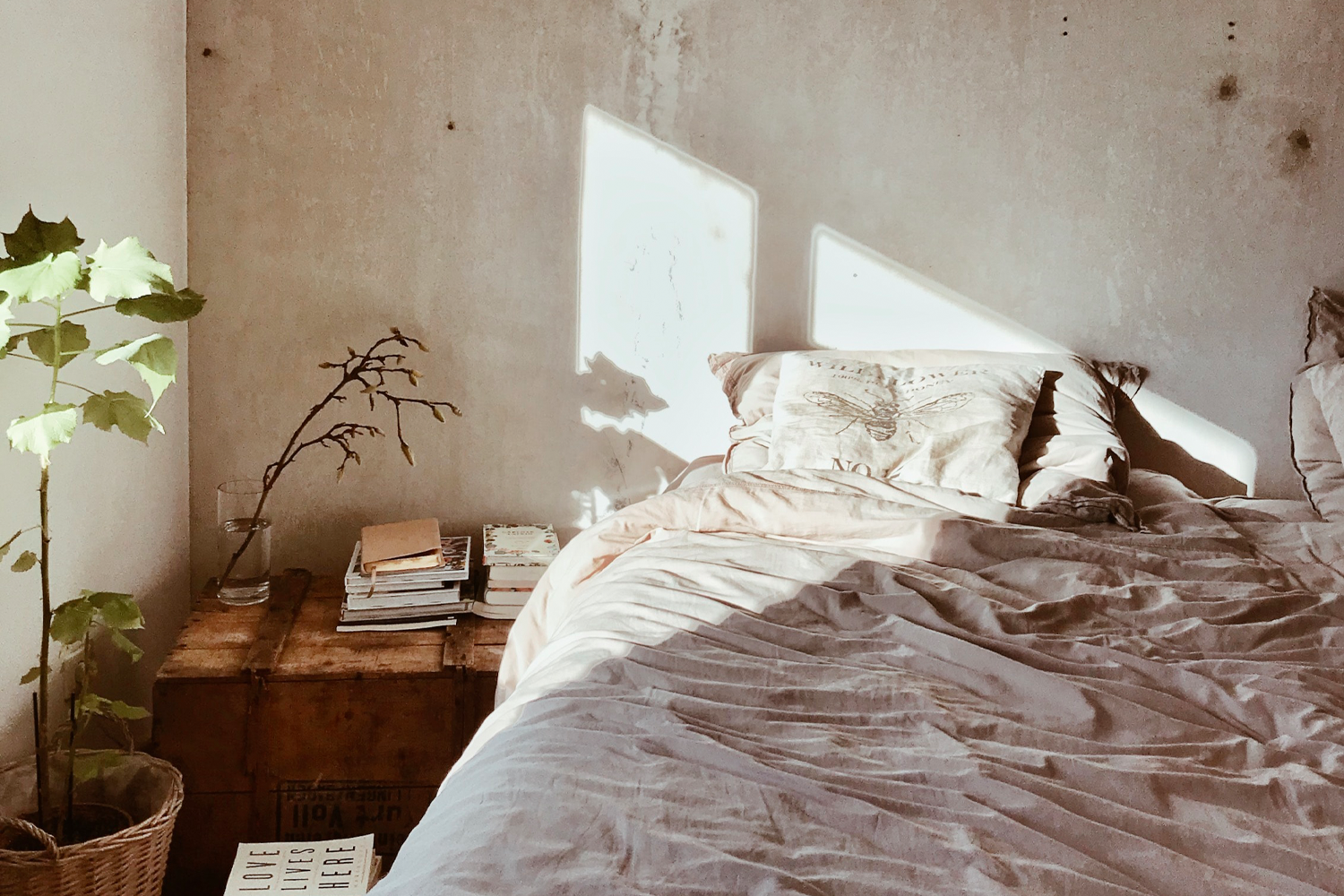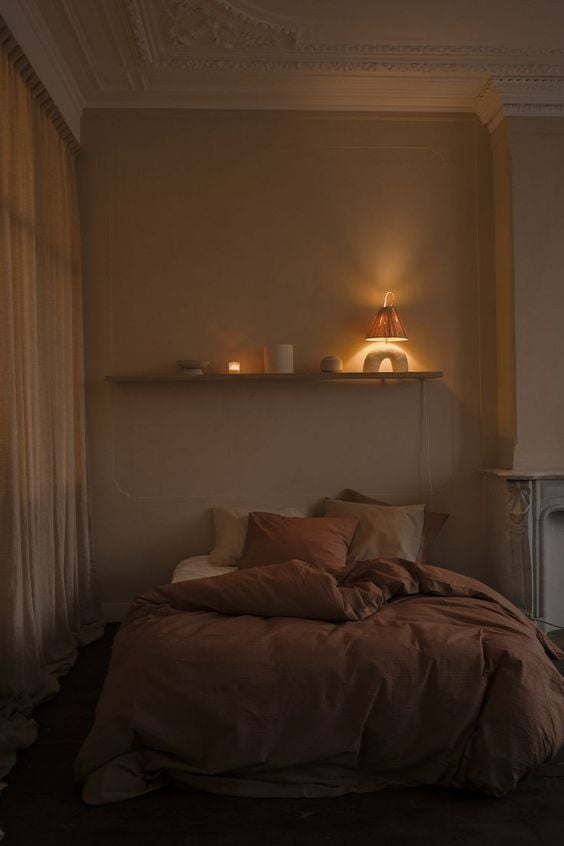
These 5 Evening Routines Will Help You Fall Asleep
This publication is also available in: Français
English (UK)
Deutsch
Italiano
Español
**A good night’s sleep** is essential for good health.
However, not everyone falls into the arms of Morpheus once darkness sets in. On the contrary, anxiety due to COVID and our habit of scrolling through our phone screens with reddened eyes have taken a toll on our sleep. As demonstrated by the Ifop study on the French relationship with their bed, **1/3 of us experience sleep disturbances**.
Falling asleep quickly seems like an unattainable dream for 29% of the population.
But insomnia is far from inevitable; it can be corrected or at least diminished.
The secret to achieving this? Establishing **evening routines**. But not just any routines, healthy habits designed for relaxation and unwinding, which, when ritualized, allow you to **fall asleep quickly**.
Optimize Your Bed Comfort to Avoid Insomnia
The choice of good bedding will positively impact your sleep.
This starts with a good mattress. A good mattress provides adequate body support, reduces pressure points, promotes spinal alignment, and alleviates joint pain. It also contributes to more peaceful sleep, better body temperature regulation, and greater durability. For this, make sure to choose a high-quality mattress that is also big enough if you share your bed. The 140×190 mattress is the most popular choice.
Also, consider your pillow. Make sure it properly supports your neck and head. This will help you avoid tension in your neck and shoulders. Choose a silk pillowcase; besides being soft, it has very interesting properties for hair and skin!
Disconnect from Screens 1 Hour Before Bedtime
A little Netflix and then to bed.
Except that the movie session often comes with an extra hour of scrolling through social media. And when it’s time to sleep, sleep eludes us. Adopting a screen-free routine before bed can greatly improve sleep quality. Screens like TVs, smartphones, and tablets emit blue light that disrupts our internal clock and inhibits the production of melatonin, the hormone responsible for regulating sleep. By staying away from screens at least an hour before bed, we allow our brain to relax and prepare for rest.
Moreover, establishing a screen-free routine before bed can take many forms.
You can, for example, place your phone in a box once you get home. Read a book, write, do a puzzle, listen to music, etc.
By establishing a regular routine and avoiding screens before sleeping, you give yourself the best chance to improve your sleep quality and wake up fresher and more rested the next morning.
Create a Relaxing Atmosphere for Bedtime
To promote sleep, it’s advisable to be relaxed, as adopting this posture sends a signal to the brain that both body and mind are ready to rest. And for this to happen, it’s good to create the right conditions, namely a relaxed atmosphere.
For this, you can develop the habit of being in a dimly lit room, lighting a candle, playing soft music, and diffusing essential oils like lavender for its soothing properties or chamomile for its calming effects.
The idea? It’s to feel like you’re in a healthy place where well-being and letting go guide your actions. In such an atmosphere, you would feel relaxed. **This is crucial for falling asleep**.

Evening Routine for Sleep: Self-Care with Gentle Gestures
Taking care of yourself before going to bed is another **evening routine** that will inevitably help you sleep better.
Giving yourself a moment to feel good, taking care of your skin, applying care products, and self-massaging is a way to promote relaxation and create conditions conducive to sleep.
Before bed, head to the bathroom, apply your night cream, and do a session of Face Yoga by massaging targeted areas. This will help your face relax, smooth your features, and revitalize your skin. Practiced mindfully, these gestures will take you to a timeless, very pleasant, and relaxing moment. To enhance the experience, place a warm towel on your face and apply your night serum in your evening skincare routine. In short, recreate the spa experience at home.
Practice Breathing to Fall Asleep Quickly
For some people, bedtime is when stress and anxiety arise. When we’re inactive, that’s when the mind wanders. It can then focus on our problems, doubts, or fears, preventing us from falling asleep. A tip to counteract insomnia? Practice breathing.
By focusing on slow, deep, and regular breathing, we activate our parasympathetic nervous system, which promotes relaxation and calm. By slowing our breathing rate, we send a signal to our brain that it’s time to relax and prepare for rest. This can reduce cortisol levels, the stress hormone, and stimulate the release of neurotransmitters like serotonin and dopamine, which promote feelings of well-being and drowsiness.
Focusing on breathing also helps divert attention from stressful or intrusive thoughts, calming the mind and facilitating sleep.
By regularly practicing breathing exercises, like abdominal breathing or cardiac coherence before bed, you can create a state conducive to deep and restorative sleep.
Investing in a good mattress, and quality bedding, staying away from screens, taking care of your body and mind, practicing breathing… These are new habits to integrate into your **evening routine**. By being consistent, you should no longer suffer from nighttime insomnia but instead **fall asleep easily**.



